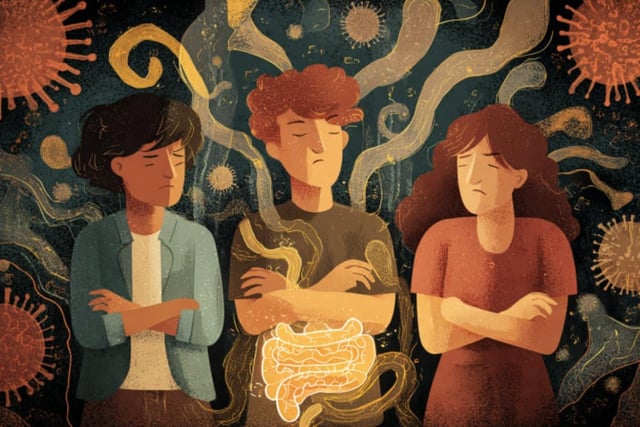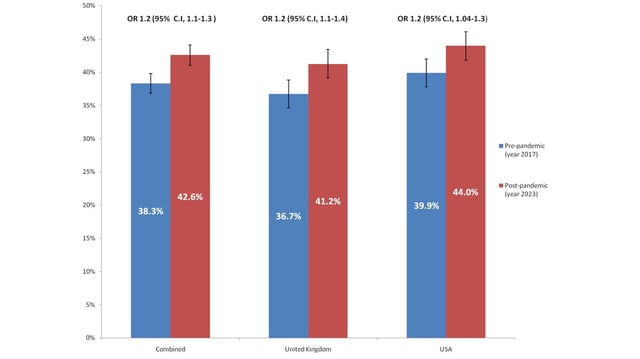Overview
- The study compared nationally representative samples in the United States and United Kingdom using Rome Foundation diagnostic tools in 2017 and 2023.
- Overall prevalence of disorders of gut-brain interaction climbed from 38.3% before the pandemic to 42.6% afterward.
- IBS rates rose 28% from 4.7% to 6.0%; functional dyspepsia surged nearly 44% from 8.3% to 11.9%.
- Individuals with long COVID were significantly more likely to develop a gut-brain disorder and reported worsened anxiety, depression and reduced quality of life.
- Investigators and professional bodies have urged adaptation of clinical guidelines and expanded research into gut-brain pathways to address the post-COVID surge.



